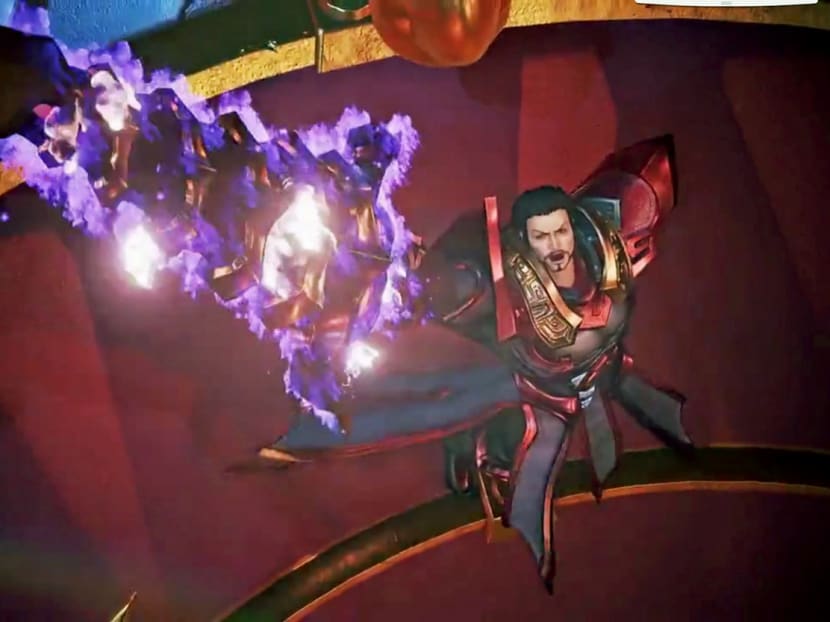Chinese role-playing game puts Pokemon Go in the shade
BEIJING — Honor of Kings, a role-playing game for smartphones, has attracted 50 million active daily users, after adding five million a month since it was launched by Internet company Tencent last year — making it more popular than Nintendo’s global sensation, Pokemon Go.

Honor of Kings, in which players battle mythical beasts in a fantasy landscape, is now more popular than Pokemon Go.
BEIJING — Honor of Kings, a role-playing game for smartphones, has attracted 50 million active daily users, after adding five million a month since it was launched by Internet company Tencent last year — making it more popular than Nintendo’s global sensation, Pokemon Go.
Although the game is almost unknown outside of China, Honor of Kings, in which players battle mythical beasts in a fantasy landscape, now has an army of players roughly equal to the total population of South Korea.
The rise of the dragon-battling game underlines the transition in Chinese gaming away from PCs towards mobile, and the continued reliance of top Chinese titles on imported designs. Honor of Kings is essentially a mobile version of the world’s most played game, League of Legends, which was created by United States developer Riot Games.
“If you were to put the two pictures of the two games side by side, you’d probably confuse them,” said Mr Daniel Ahmad of Niko Partners, a consultancy that estimates China’s number of smartphone gamers has risen to 400 million.
Tencent bought a controlling stake in Riot in 2011, and acquired all its remaining shares in December 2015.
The Shenzhen-based company also led a Chinese consortium which last year paid US$8.6 billion (S$12.5 billion) for a majority stake in Finland’s Supercell, maker of some of the world’s most popular mobile games including Clash of Clans, which claims more than 100 million active daily users.
Mr Ahmad said the Riot acquisition was “more about what can they take from the company and bring to China”, adding that “they invest in games which do well globally and help those companies to do better in China.”
Also known as Kings of Glory, Honor of Kings was responsible for much of Tencent’s reported 87 per cent jump in revenue from mobile games in the third quarter of 2016, which contributed to a 43 per cent rise in net profits from a year earlier. About half of Tencent’s total revenues comes from its games business, making it the world’s biggest games company by revenue.
An average Honor of Kings user plays for almost six hours a week and spends 41 yuan (S$8.50) on the game each month, according to Niko Partners. Like most mobile games in China, it is free to download; Tencent gets revenue from selling in-game extras such as upgraded characters and weapons. So far, the game has been downloaded more than 200 million times.
Mr Benjamin Wu, an analyst at Shanghai-based consultancy Pacific Epoch, predicted the game’s daily users could reach 70 million this year. In comparison, Pokemon Go had some 45 million people actively playing worldwide at its peak in July, but that number dropped to around 30 million a month later, according to data from analytics company Apptopia.
Unlike the Nintendo game, however, Honor of Kings’ users are almost entirely based in China. Tencent plans to launch a Korean version this year.
The Chinese title’s growth was driven in part by promotion on Tencent’s social media platforms WeChat and QQ, which have hundreds of millions of users in the country. Online streams of competitors playing the game have drawn in millions of viewers on E-sports platforms like Panda TV, owned by Wang Sicong, the son of China’s richest man Wang Jianlin.
Some of the mobile game’s growth, however, comes at the expense of the original PC-based League of Legends title. “More and more users are switching from the PC to mobile,” said Mr Wu. “Tencent (has not done) well in PC games in last two quarters.” FINANCIAL TIMES





